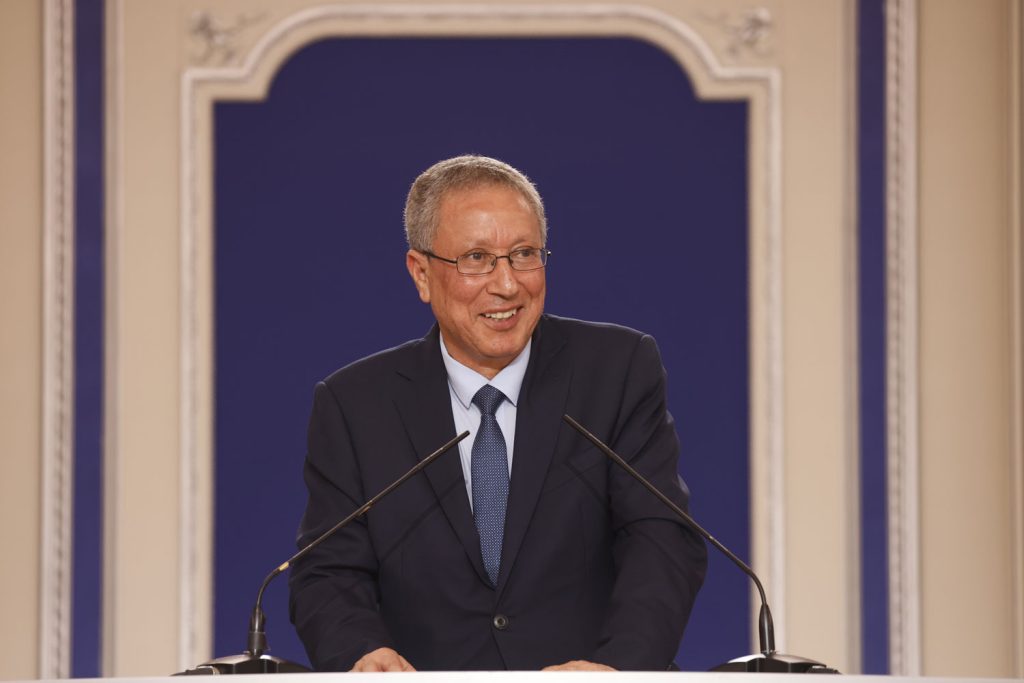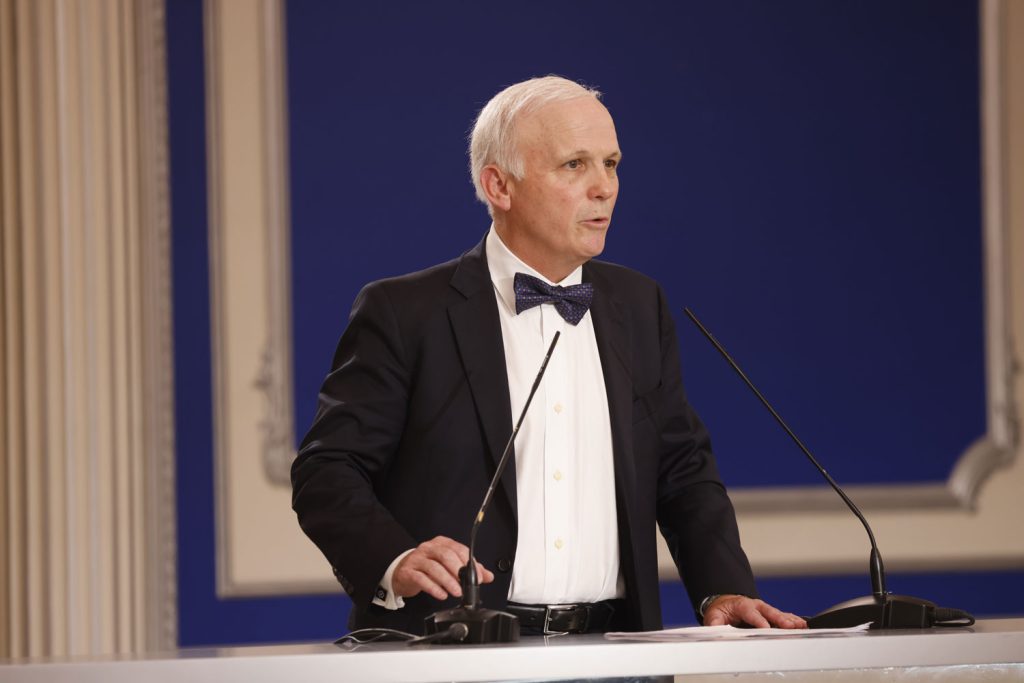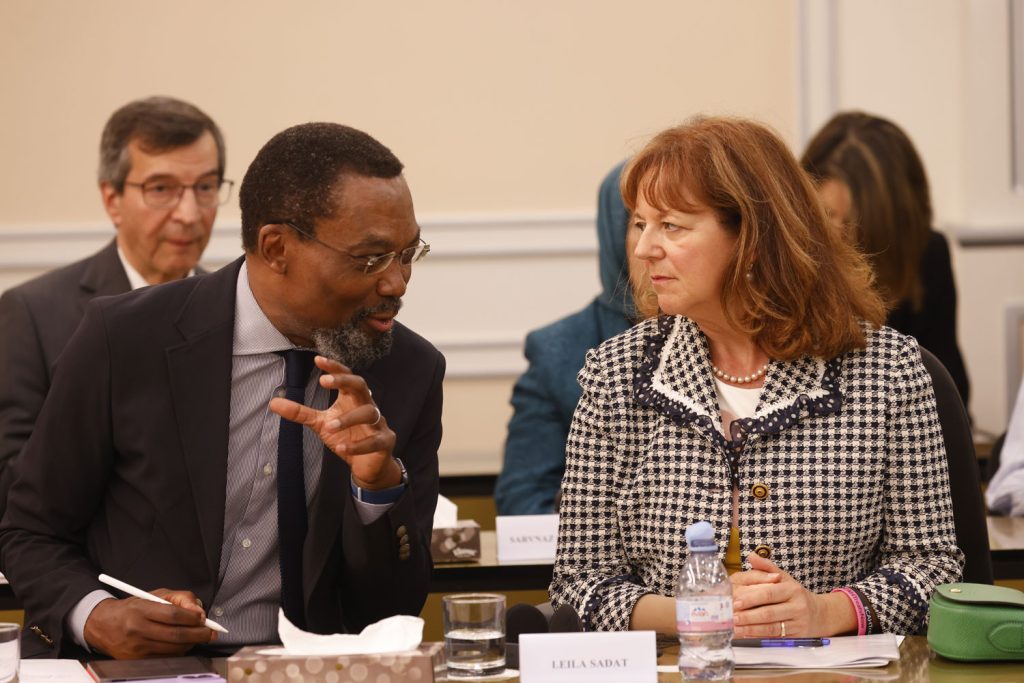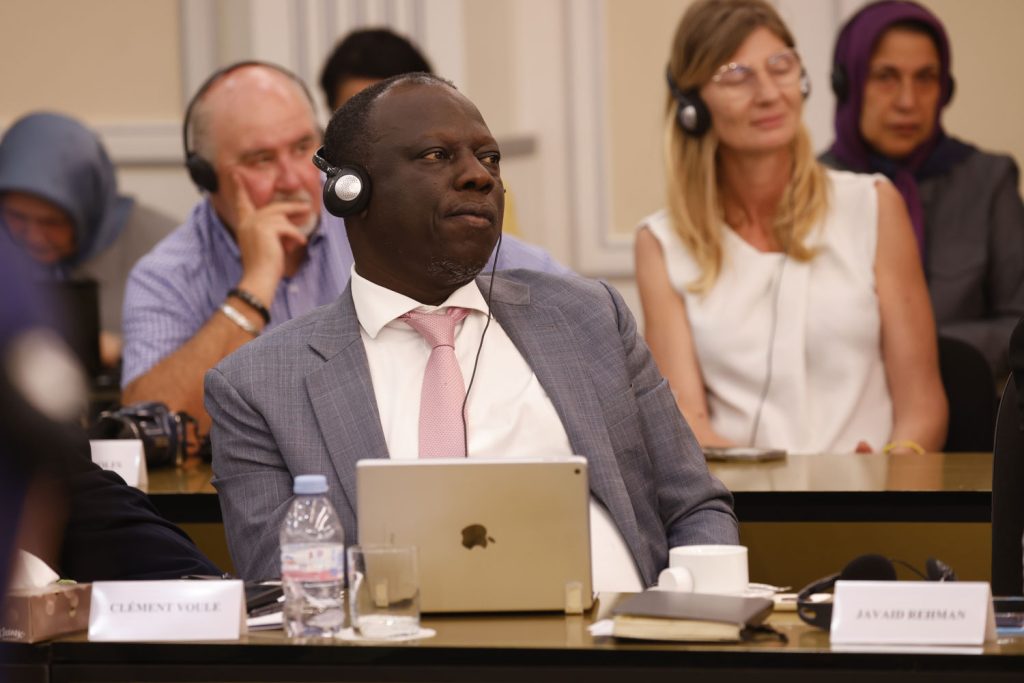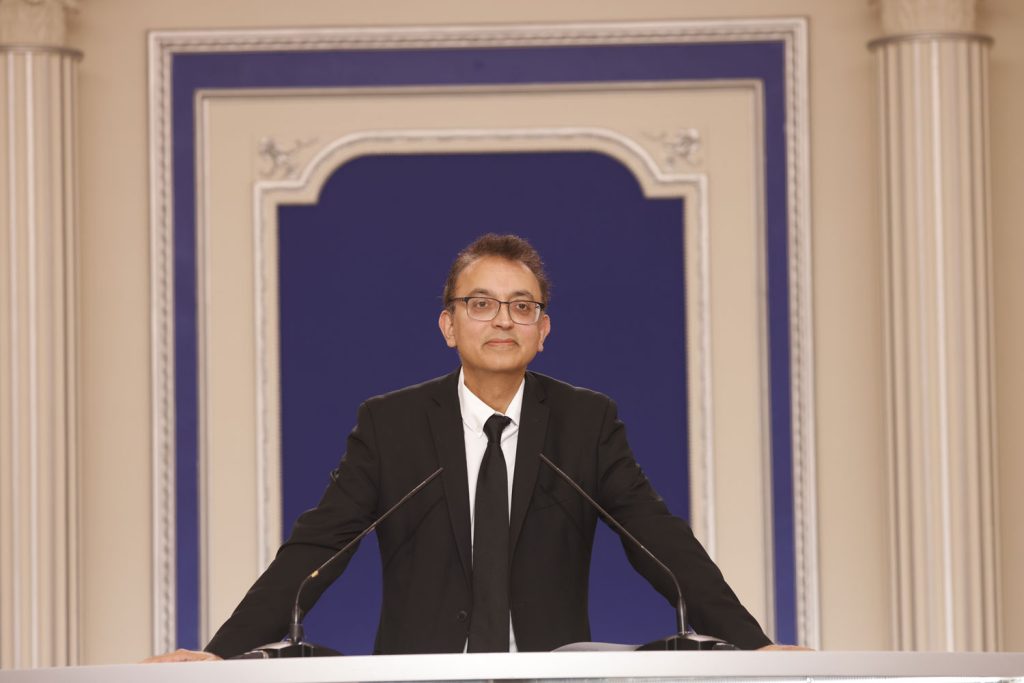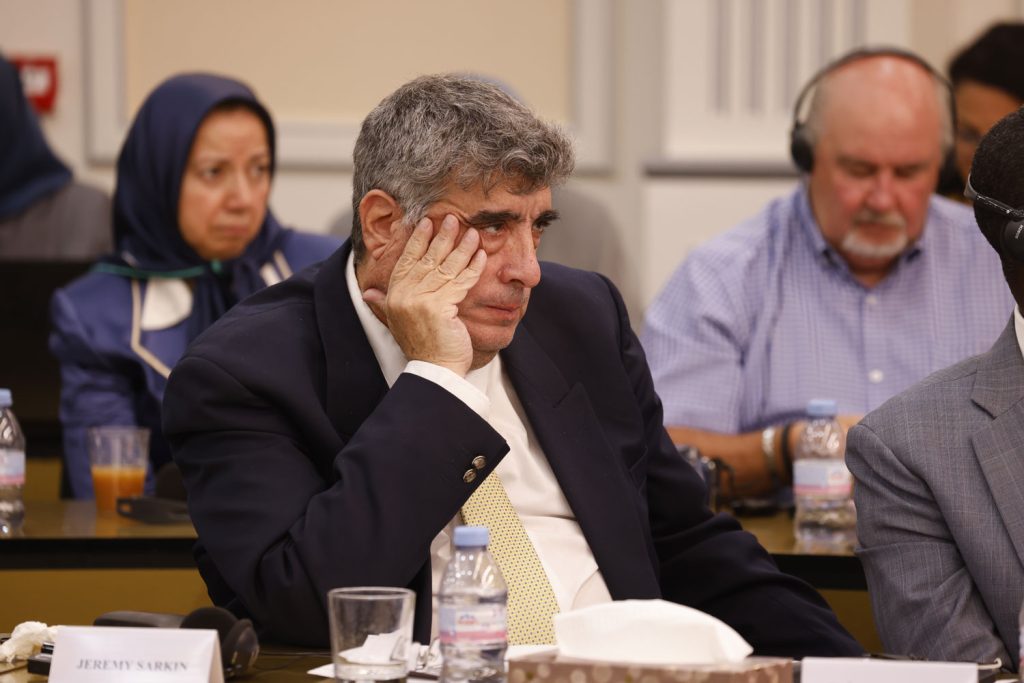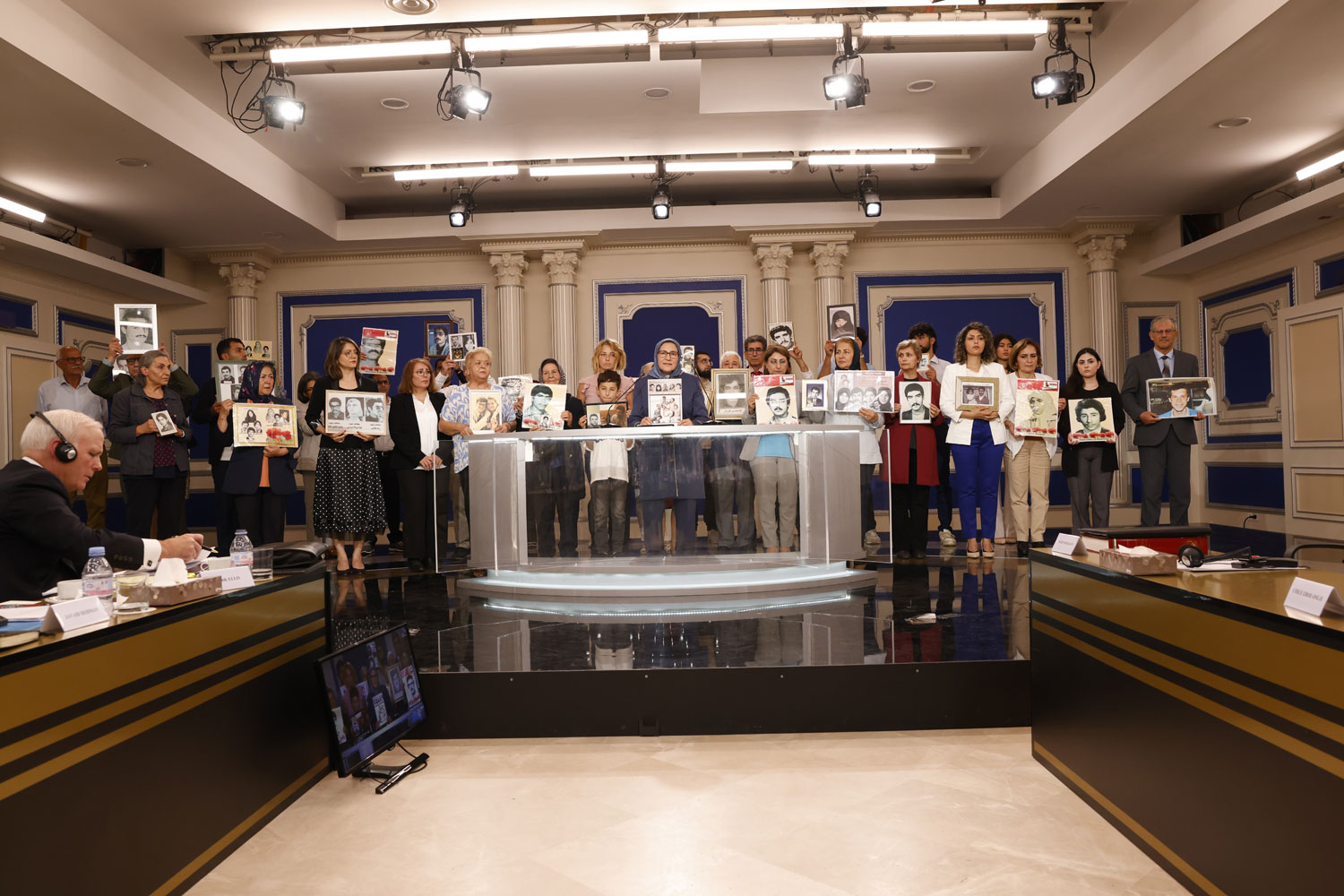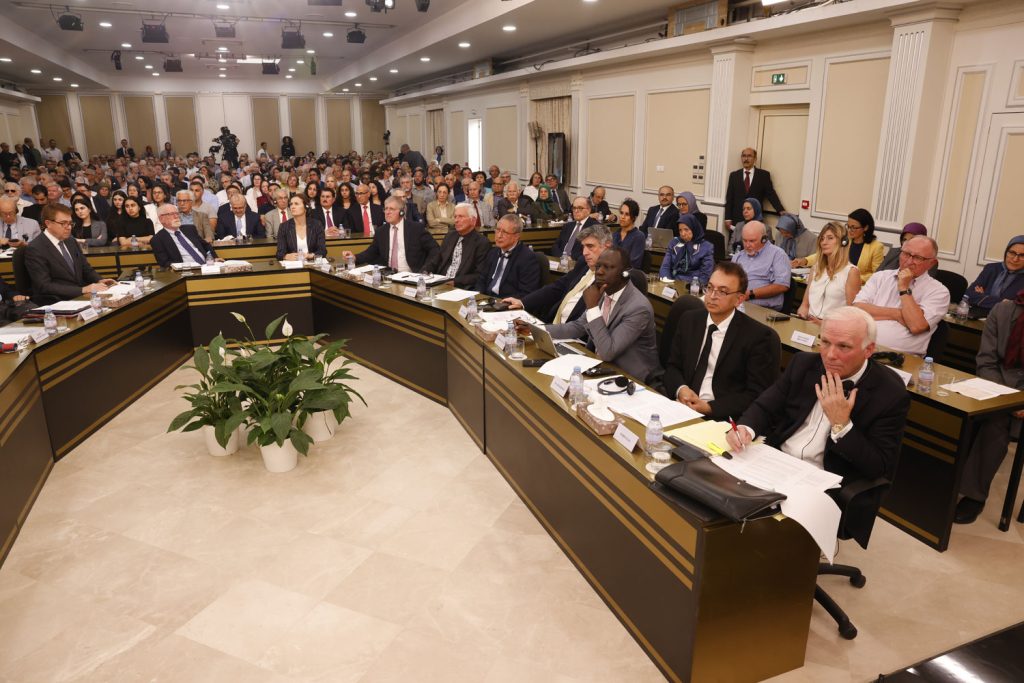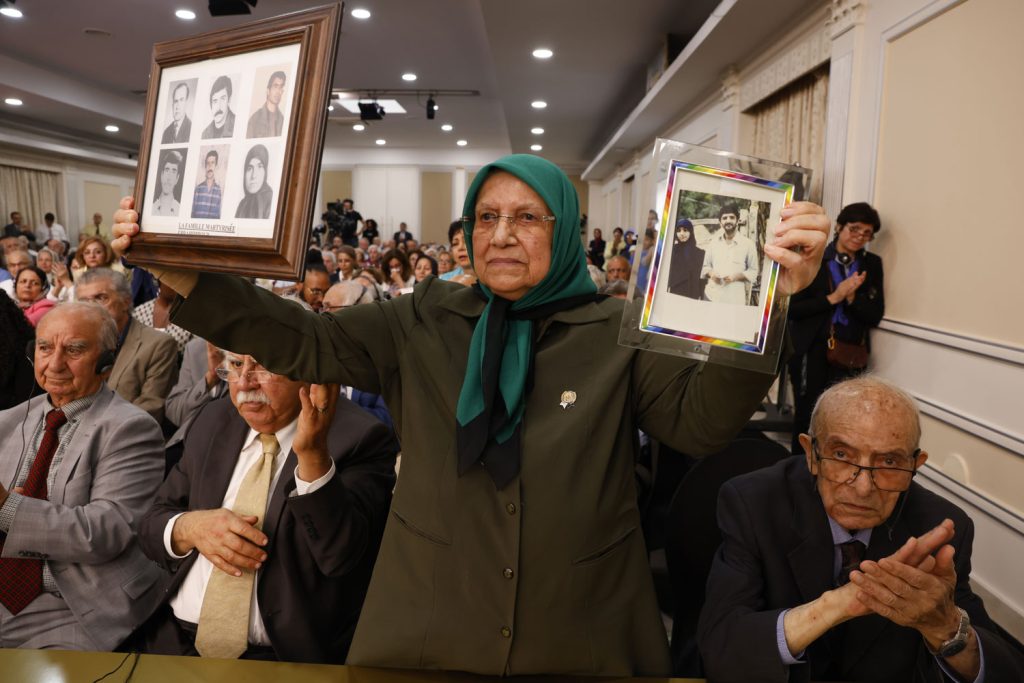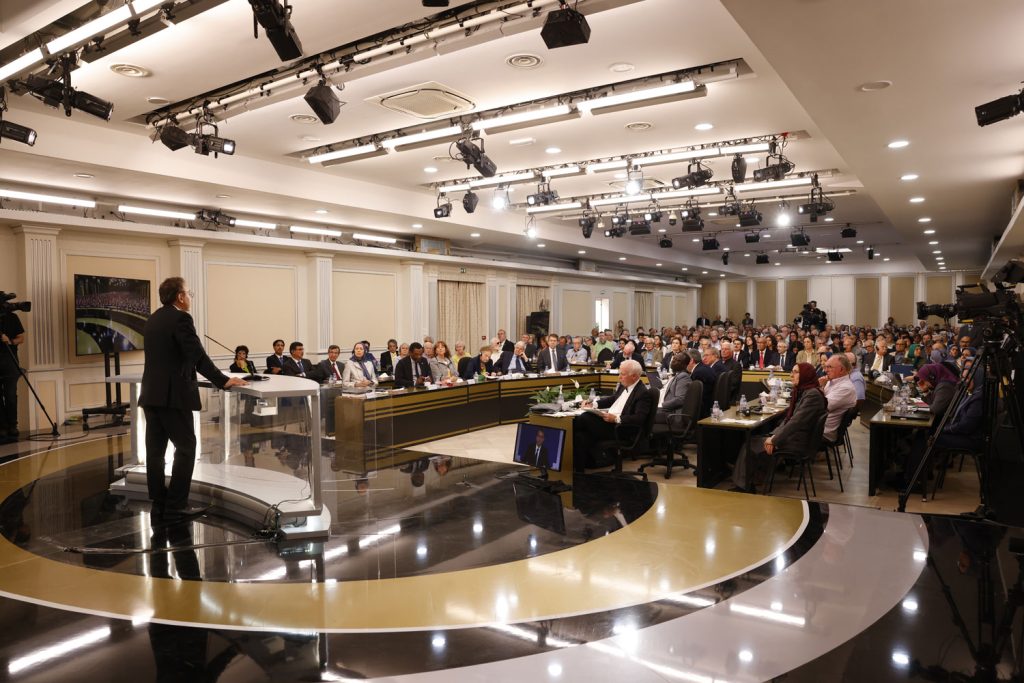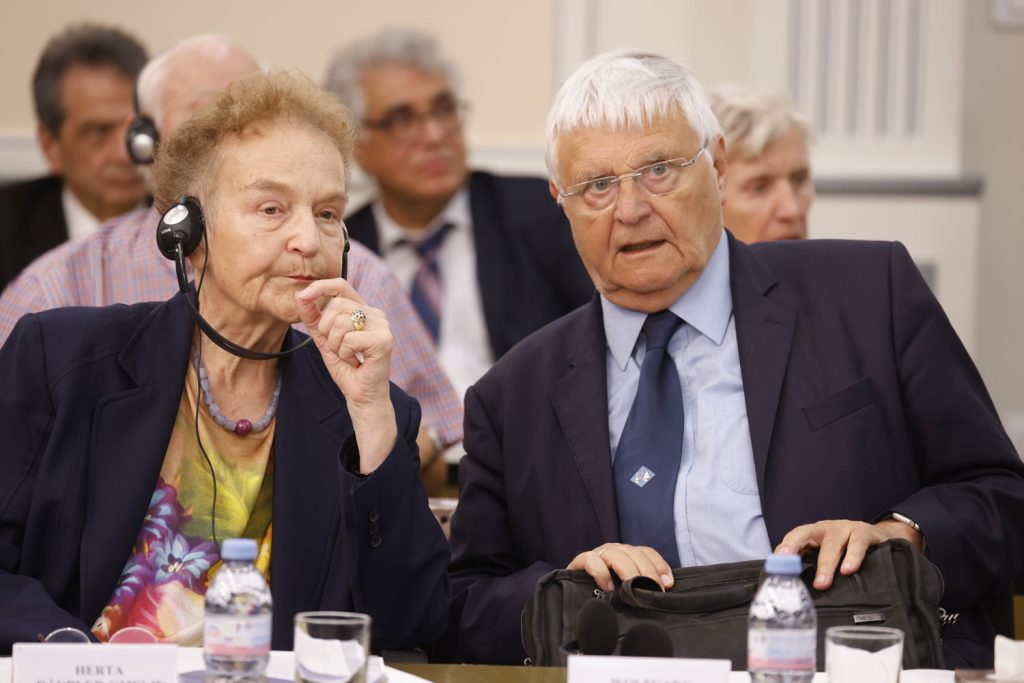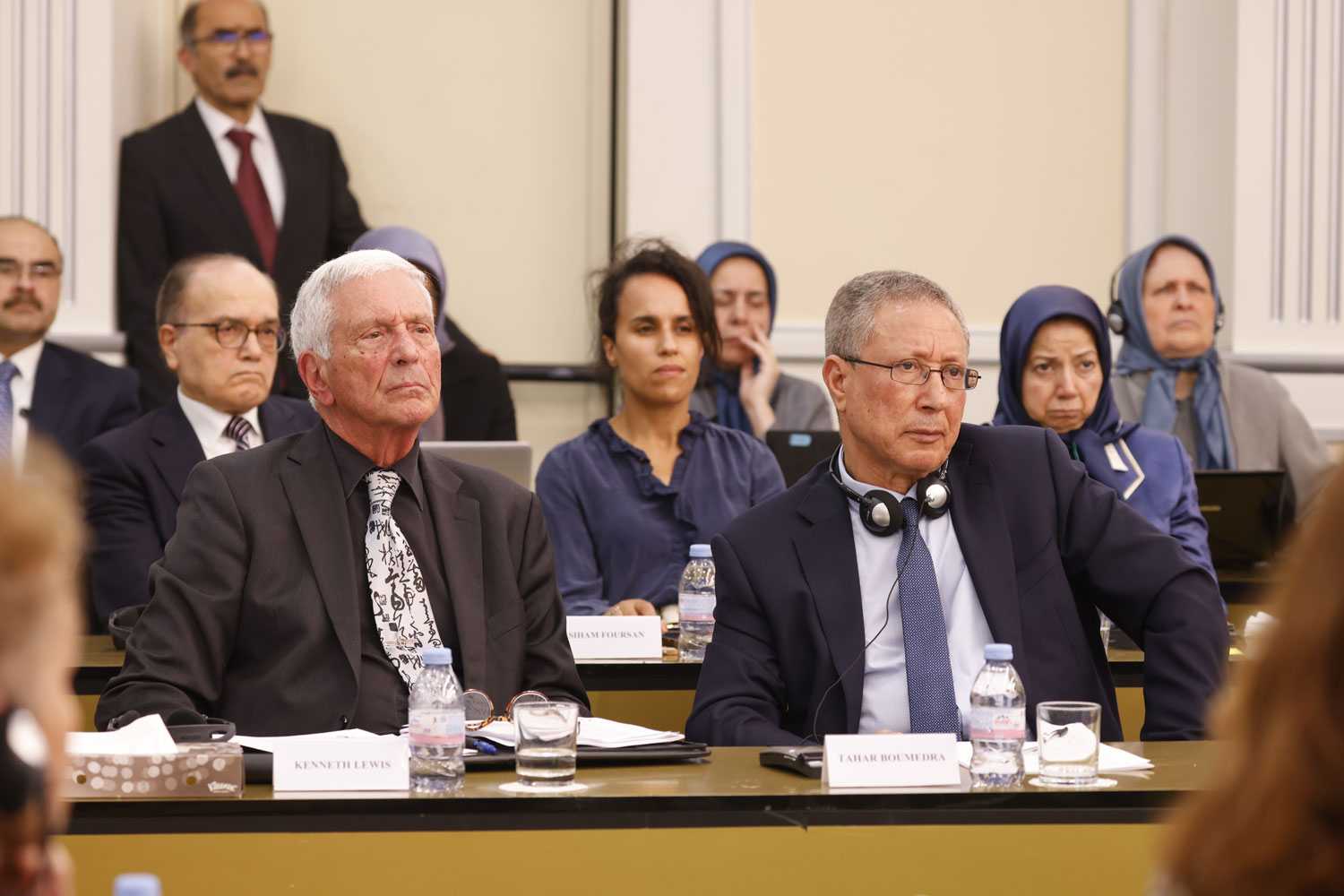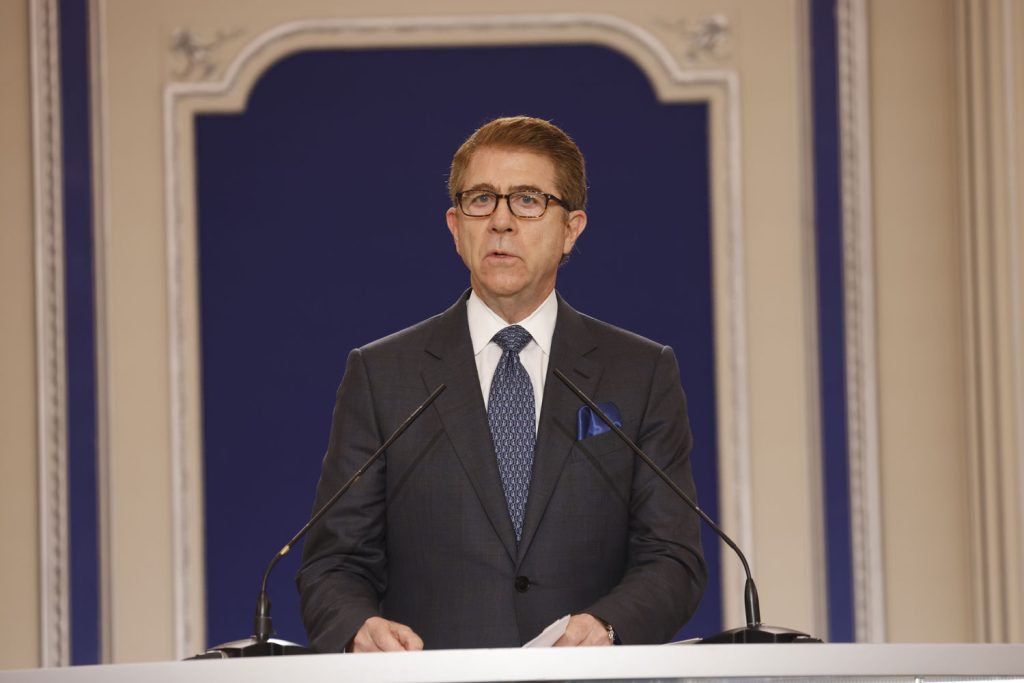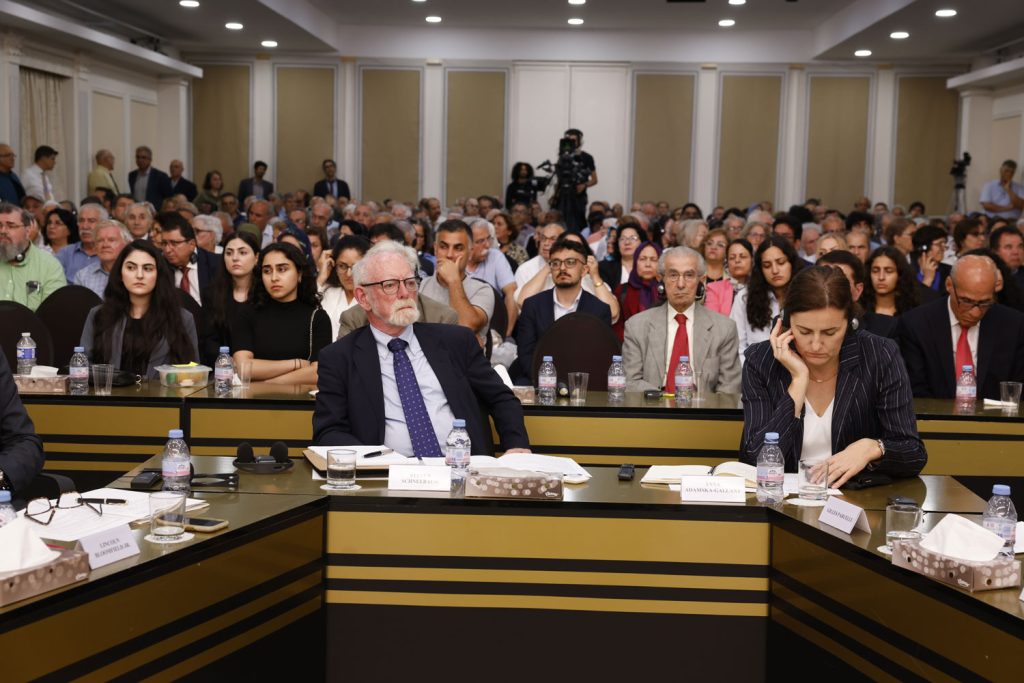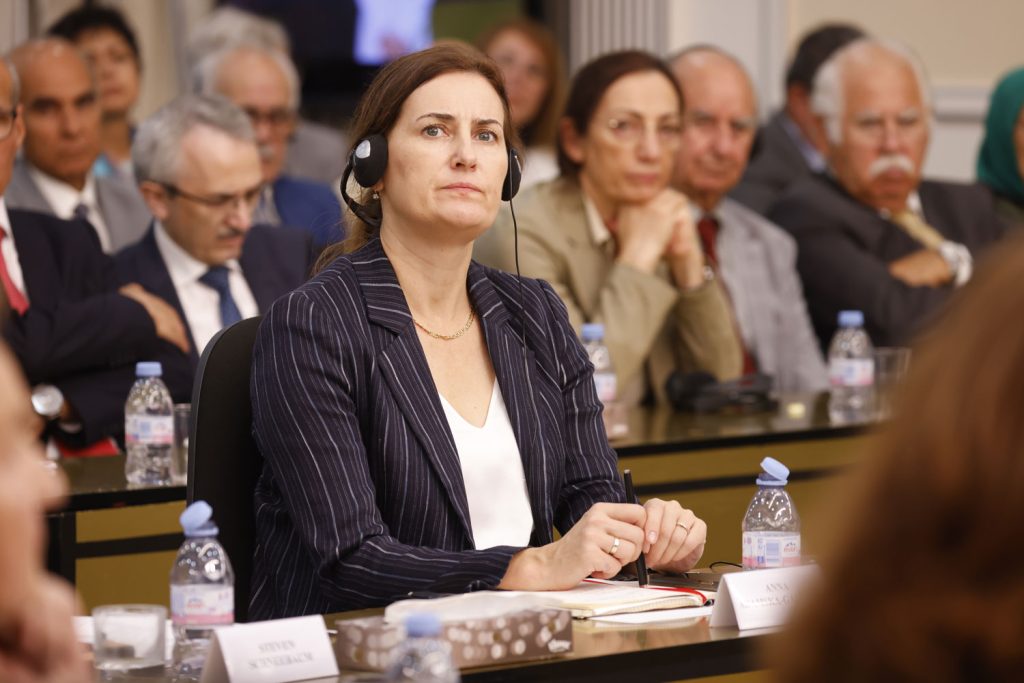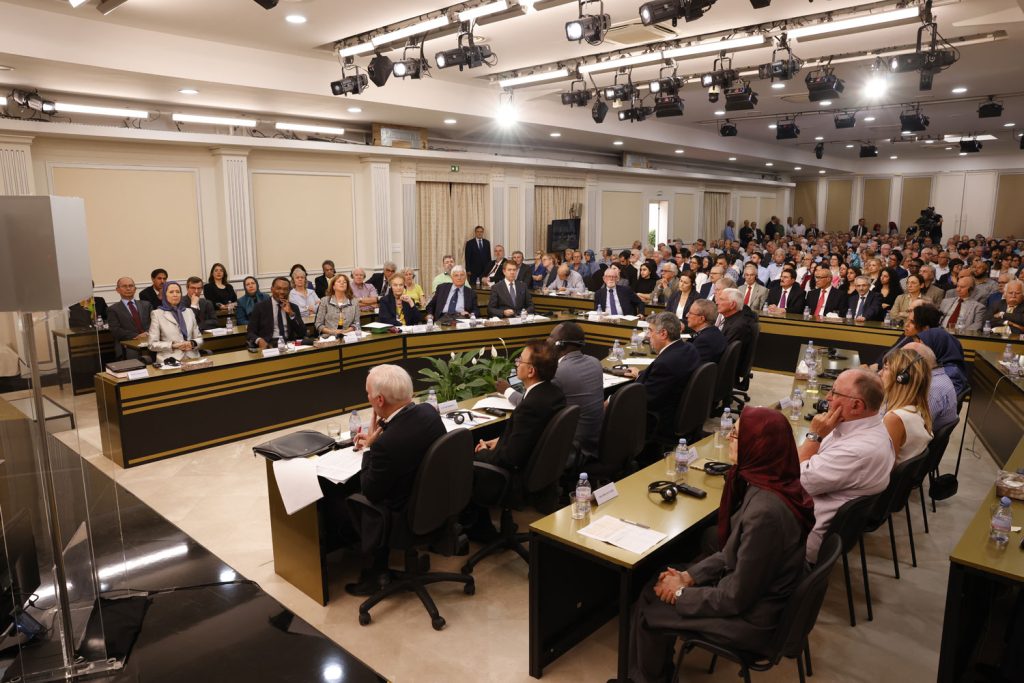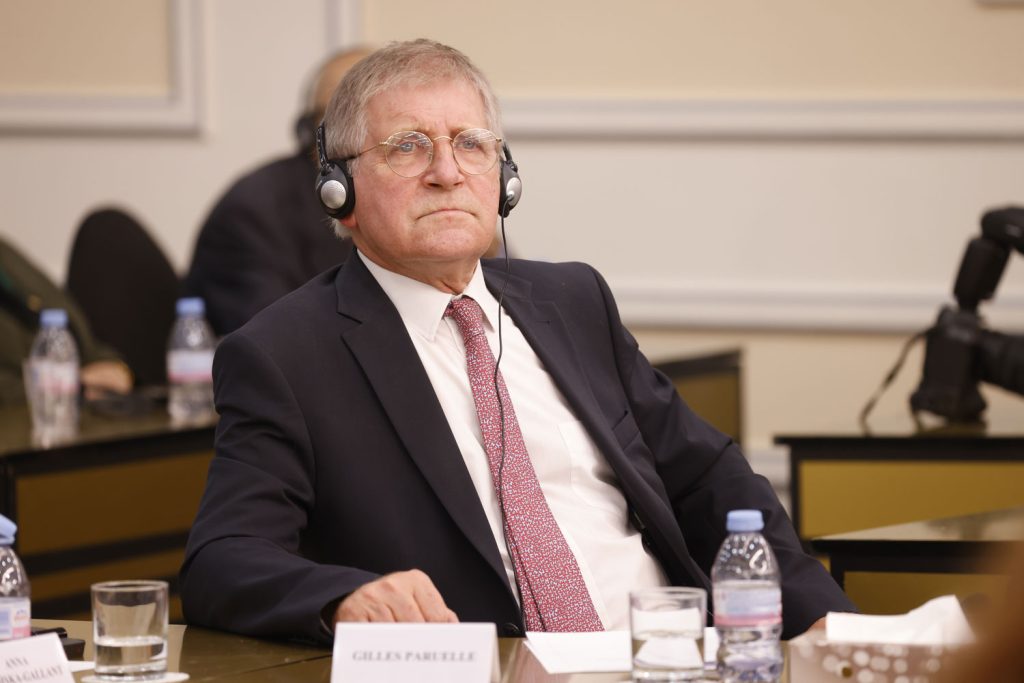Leading international legal experts and human rights advocates joined forces on 24 August 2024 to condemn the ongoing impunity enjoyed by Iran’s leaders for decades of systematic human rights abuses. The focus of the international conference, held north of Paris, was the 1988 massacre of political prisoners, widely recognised as one of the gravest crimes against humanity in recent history.
Distinguished international speakers at the conference included:
- Professor Chile Eboe-Osuji, President of the International Criminal Court (ICC) (2018-2021)
- Prof. Leila Sadat, Special Adviser on Crimes Against Humanity to the ICC Prosecutor (2012–2023)
- Prof. William Schabas, UN expert on genocide, former chair of the UN Independent Commission of Inquiry on the 2014 Gaza Conflict (2014-2015)
- Prof. Javaid Rehman, UN Special Rapporteur on the situation of human rights in the Islamic Republic of Iran (2018–2024)
- Prof. Herta Däubler-Gmelin, Minister of Justice of Germany (1998–2002)
- Prof. Wolfgang Schomburg, Judge, UN International Criminal Tribunal for the former Yugoslavia (ICTY) (2001-2008); former Judge, UN International Criminal Tribunal for Rwanda (ICTR); Judge, Federal Supreme Court of Germany (1995–2000)
- Dr. Mark Ellis, Executive Director, International Bar Association (IBA)
- Prof. Claudio Grossman, Special Adviser to the ICC Prosecutor; Member, UN International Law Commission (ILC)
- Clément N. Voule, UN Special Rapporteur on the Rights to Freedom of Peaceful Assembly and of Association (2018–2024)
- Prof. Jeremy Sarkin, Chair-Rapporteur and Member of the UN Working Group on Enforced or Involuntary Disappearances (WGEID) (2008–2014)
- Steven Schneebaum, Adjunct Professor, School of Advanced International Studies, The John Hopkins University
- Tahar Boumedra, President of JVMI; former Head of the UN Human Rights Office in Iraq
- Kenneth Lewis, lawyer for the PMOI in the Swedish trial of former Iranian prison official Hamid Noury
- Gilles Paruelle, Counsel, International Criminal Tribunal for Rwanda
- Amb. Lincoln P. Bloomfield Jr., former US Assistant Secretary of State for Political-Military Affairs
Maryam Rajavi, President-elect of the National Council of Resistance of Iran (NCRI), addressed the event on behalf of the Iranian opposition.
Several survivors of the 1988 massacre, victims’ families, and former political prisoners also addressed the conference.
Distinguished speakers, including former ICC President Judge Eboe-Osuji and former UN Special Rapporteur on Iran Javaid Rehman, highlighted the urgent need for accountability.
Last month, the UN Special Rapporteur on Iran published a landmark report focusing on the 1988 massacre and Iran’s related atrocity crimes. The report determined that the 1988 extrajudicial executions and enforced disappearances constituted both ongoing crimes against humanity and the crime of genocide.
Presenting his landmark report on Iran’s atrocity crimes, Prof. Rehman told the conference: “The report examines the systematic and widespread attack on a civilian population resulting in mass murder, summary, arbitrary, and extrajudicial executions, as well as enforced disappearances of thousands of political prisoners between July to September of 1988. Today, as we speak, it is 36 years since the tragedy, and yet the crime of enforced disappearances has continued.”
“An overwhelming majority of the executed persons were members and sympathisers of PMOI, although hundreds of individuals belonging to leftist political groups and organisations were also forcibly disappeared and executed.”
“There is considerable evidence that mass killings, torture and other inhumane acts against members of the PMOI were conducted with genocidal intent.”
“The case for genocide against members of the PMOI rests on the basis that the perpetrators perceived them as deviants who had deserted Islam,” Prof. Rehman stated, underlining the religious motivations behind the mass executions.
Judge Eboe-Osuji said he supported the Special Rapporteur’s assessment that the 1988 massacre constituted genocide. “International law does not recognise that anybody enjoys immunity because of the position they hold in any government, Be that the President, Prime Minister or whatever. So people who commit crimes or atrocities thinking that they are protected by their office are making a very serious miscalculation in that regard,” Prof. Eboe-Osuji emphasised.
Prof. Sadat added: “Last year I was requested to examine the 1988 massacre. Based upon all the available evidence, I concluded that the 1988 massacre constituted a crime against humanity, and that the victims and survivors had been subjected to the commission of these crimes, which shock the conscience of humankind.”
“I did not arrive at this conclusion lightly. Having served for 10 years as the Special Adviser on Crimes Against Humanity to the International Criminal Court Prosecutor, I know how egregious they are, and how the victimisation they entail devastates entire communities,” she added.
Dr. Mark Ellis welcomed the use of Universal Jurisdiction to hold the perpetrators of the 1988 massacre accountable for their crimes.
“Under the universal jurisdiction principles, nation states need to create a more robust process to undertake structural investigations, where it opens investigations into crimes committed by the Iranian regime, just as was done in Sweden,” he said.
Clement Voule pointed out that as Special Rapporteur on the Rights to Freedom of Peaceful Assembly and of Association, he joined the Special Rapporteur on Iran in sending a formal communication to the Iranian authorities, raising concerns about the authorities’ refusal to clarify the circumstances of the 1988 massacre and the fact that the victims’ families were still being persecuted.
Judge Schomburg called for the establishment of a people’s court, or tribunal, as a means to achieve accountability for the 1988 massacre.
As an alternative option, Prof. Schabas urged the UN Human Rights Council to establish a Commission of Inquiry to investigate the 1988 massacre.
Prof. Sarkin called on the UN to open investigations into those who were forcibly disappeared in the course of the 1988 massacre.
Meanwhile, Prof. Herta Däubler-Gmelin urged UN Member States to impose sanctions on the Islamic Revolutionary Guard Corps (IRGC) and members of the Iranian Judiciary for their role in the ongoing human rights abuses in Iran.
JVMI President Tahar Boumedra commended Prof. Javaid Rehman for the courage he showed as Special Rapporteur to investigate the Iran’s atrocity crimes, chief among them the 1988 massacre.
The conference coincided with the release of a powerful open letter by 345 distinguished UN human rights and legal experts, Judges, Nobel laureates and globally-renowned statesmen, addressed to UN High Commissioner for Human Rights Volker Türk, endorsing the recent landmark report by the UN Special Rapporteur on Iran.
“We would like to commend Prof. Javaid Rehman for his six years of distinguished service to the cause of human rights in Iran as Special Rapporteur and in particular for his courage and determination in seeking truth and accountability for the mass executions of tens of thousands of political prisoners in 1981-1982 and the 1988 massacre,” the open letter said.
“The Special Rapporteur’s report opens a pathway to justice and an end to impunity in Iran. In line with his recommendations, we urge Your Excellency to use your good offices and call on the Human Rights Council to establish an international accountability mechanism to take actionable measures aimed at ending impunity for Iran’s atrocity crimes, chief among them the 1988 massacre,” the letter added.
Several of the conference participants emphasised in a joint statement the “rampant and ongoing human rights violations in Iran” and called for the establishment of an international accountability mechanism to investigate these crimes.
They also expressed deep concern about the current “sham trials” in Tehran against 104 PMOI (MEK) members who live abroad, urging INTERPOL to reject any red notices against them.
“The fake legal drapery is designed to camouflage a new campaign of terrorism against the MEK and other regime opponents abroad,” Prof Schneebaum said, adding: “Any Red Notice requested by Iran should be rejected at the outset by INTERPOL, and if issued, should be ignored by any country to which it is presented.”
Maryam Rajavi, President-elect of the National Council of Resistance of Iran (NCRI), echoed these calls, describing the 1988 massacre as “atrocity crimes against humanity and genocide.” She called for an intensified global campaign against executions and for a future Iran founded on democracy and the rule of law.
Silence only emboldens the “clerical regime,” the legal experts’ statement warned. The international community is now under renewed pressure to break its silence and ensure that the Iranian authorities’ decades-long impunity finally comes to an end.
1988 Massacre – The Facts
Justice for the Victims of the 1988 Massacre in Iran (JVMI) is a London-based NGO dedicated to seeking accountability for the mass executions and disappearances of political prisoners in Iran.
In 1988, the government of Iran massacred 30,000 political prisoners. The executions took place based on a fatwa by Supreme Leader Ayatollah Khomeini, targeting the main opposition movement, the People’s Mojahedin Organisation of Iran (PMOI or MEK). Three-member commissions known as ‘Death Commissions’ were formed across Iran sending political prisoners who refused to abandon their beliefs to execution. Members of other leftist groups were also executed in a subsequent second wave. The victims were buried in secret mass graves. The perpetrators continue to enjoy impunity. Since 2016, the names of nearly 100 ‘Death Commission’ members have been made public. Many still hold senior positions in the Iranian judiciary or government.
